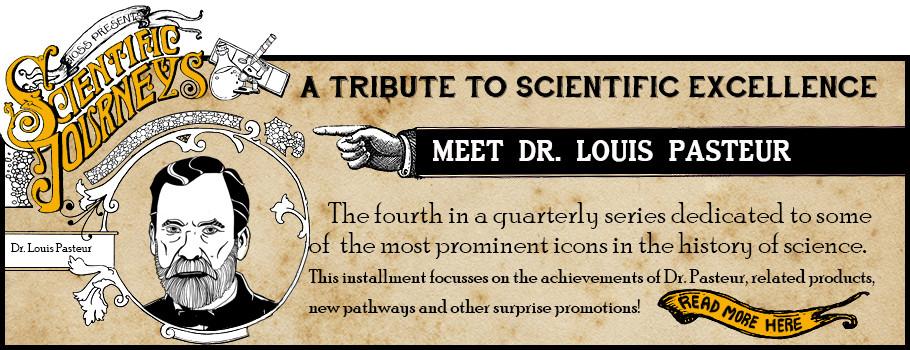Dr. Louis Pasteur was born on December 27, 1822, in Dole, France. Pasteur obtained his Master of Science degree in 1845 followed by an advanced degree in physical sciences. He later earned his doctorate in sciences in 1847.
While he was studying chemistry in Paris, at the age of only 22, Dr. Pasteur made one of his first discoveries; the concept of molecular dissymmetry. This became the foundation of stereochemistry. Dr. Pasteur continued his career at the University of Lille as a Professor of Chemistry. It was here that he was able to acquire experimental evidence for the participation of living organisms in all fermentative processes and showed that a specific organism was associated with each particular fermentation. This directly opposed the prevailing ideas of the time, which attributed fermentation to chemical agents.
Pasteur studied wine contamination at the request of the emperor of France, Napoleon III. He was able to show that the contamination was caused by microbes. To prevent contamination, Pasteur used a simple procedure: he heated the wine, a process now known universally as pasteurization.Pasteur later showed that fermentation and putrefaction are caused by organisms in the air. This development, along with the work of Robert Koch and Joseph Lister, lead to the acceptance of germ theory; theory that certain diseases are caused by the invasion of the body by microorganisms, organisms too small to be seen except through a microscope.
In 1879, Pasteur succeeded in cultivating the bacillus involved in chicken cholera and showed how the disease could be triggered by injecting a pure suspension of this bacillus. Pasteur’s observations highlighted immunity and led to a general understanding of the vaccination principles.
Dr. Louis Pasteur died on September 28, 1895.
Pasteur once said, “There are no such things as pure and applied science; there are only science and the application of science.”
References:
Bordenave, Guy. "Louis Pasteur (1822–1895)." Microbes and infection 5.6 (2003): 553-560.
Louis Pasteur. (2015). In Encyclopædia Britannica. Retrieved from http://www.britannica.com/EBchecked/topic/445964/Louis-Pasteur
Louis Pasteur. [Internet]. 2015. The Biography.com website. Available from:
http://www.biography.com/people/louis-pasteur-9434402
SEE OUR PASTEUR PROMOTION HERE!
